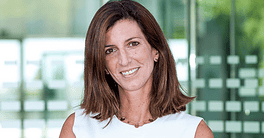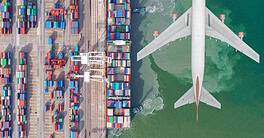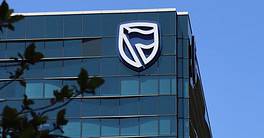Islamic financial institutions maintained good growth and higher profit in 2019, fortifying them for the difficult year ahead.
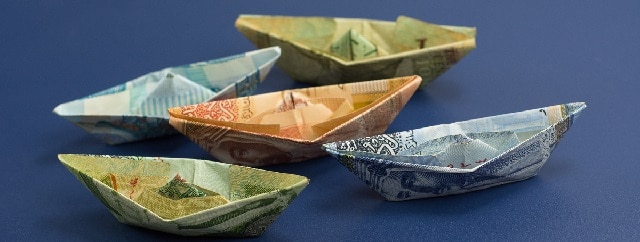
Islamic financial institutions (IFIs) enjoyed good earnings results in 2019 across the main geographical regions of the Middle East, Africa and Asia. Primarily enlarged asset bases drove increased net profit with good demand for financing.
Winners of Global Finance’s 2020 Islamic Finance Awards achieved improved financial performance together with a widened product portfolio, enhanced service, technology investment and growth in their banking and market reach. As a group, the leading Islamic banks recorded increased net profit of 20% in 2019; and their average return on assets was a healthy 1.9%. Margins remain wider than at conventional banks, supported by a low-cost deposit-funding base. IFIs’ expense bases are efficient, with sound cost-to-income ratios.
Consolidation and mergers within the Islamic financing industry remain a key theme. Early this year, Global Finance’s winner as Best Islamic Project Finance Provider, Dubai Islamic Bank, acquired Noor Bank. It is expected that consolidation between Islamic banks will continue over the next few years as institutions seek to maintain a competitive position and further rationalize their operating cost base.
The Islamic sukuk (bond) market was stronger in 2019, with global issuance rising 26%; key markets in the Gulf Cooperation Council area and Malaysia were strong. Standard Chartered Saadiq, our winner as Best Sukuk Bank, was a leading player on many prominent issues. Along with numerous large sovereign sukuk issues, first-time flotation of green sukuks was successful; and this bond type is now widely forecast to establish a niche for itself.
However, the outbreak of Covid-19 is expected to have a major impact on Islamic institutions, just as it has on conventional banks. Lower financing demand, reduced fee income and additional subsidized financing will hit revenues. Nonperforming facilities are forecast to rise, although they may not be booked this financial year. Impairments will rise as well.
Regional market analysts at EFG Hermes and MUFG Bank, Dubai, predict that deal flow will fall, remittances will decrease and key sectors such as tourism will be hit. Global Finance’s Best Islamic Financial Institutions can claim some insulation from the crisis, with sound capital positions, adequate liquidity and good buffers in place.
|
WORLD’S BEST ISLAMIC FINANCIAL INSTITUTIONS 2020 |
|---|
GLOBAL WINNERS |
|
|---|---|
Category |
Bank |
| Best Islamic Financial Institution | Kuwait Finance House |
| Best Islamic Corporate Bank | Samba Financial Group |
| Best Islamic Retail Bank | Mayank Islamc Berhad |
| Best Islamic Sukuk Bank | Standard Chartered Saadiq |
| Best Islamic Investment Bank | Samba Financial Group |
| Best Islamic Fund Manager | Kuwait Finance House |
| Best Islamic SME Bank | Qatar Islamic Bank |
| Best Islamic Asset Manager | Boubyan Capital |
| Best Islamic Trade Finance Provider | Abu Dhabi Islamic Bank |
| Best Islamic Takaful | Kuwait Finance House |
| Best Islamic Project Finance Provider | Dubai Islamic Bank |
| Best Sukuk Deal of the Year | AAA-rated €1billion ($1.08 billion) green sukuk via the Islamic Development Bank and Standard Chartered |
| IPO/Equity Deal of the Year | Saudi Aramco IPO |
REGIONAL WINNERS |
|
|---|---|
| Africa | Al Baraka Banking Group |
| Asia | Maybank Islamic Berhad |
| Europe | KT Bank |
| Middle East | Qatar Islamic Bank |
COUNTRY WINNERS |
|
|---|---|
| Afghanistan | Afghanistan International Bank |
| Algeria | Banque Al Baraka D’Algérie |
| Bahrain | Al Salam Bank |
| Bangladesh | Standard Chartered Saadiq Bangladesh |
| Brunei Darussalam | Bank Islam Brunei Darussalam |
| Egypt | Abu Dhabi Islamic Bank Egypt |
| Indonesia | Bank Syariah Mandiri |
| Iraq | Bank of Baghdad |
| Jordan | Jordan Islamic Bank |
| Kazakhstan | Al Hilal Bank |
| Kuwait | Boubyan Bank |
| Lebanon | Al Baraka Bank |
| Malaysia | Maybank Islamic Berhad |
| Morocco | Bank Assafaa |
| Nigeria | Jaiz Bank |
| Oman | Bank Nizwa |
| Pakistan | Meezan Bank |
| Palestine | Arab Islamic Bank |
| Qatar | Qatar Islamic Bank |
| Saudi Arabia | Samba Financial Group |
| Singapore | Maybank Islamic Berhad |
| South Africa | HBZ Bank |
| Sri Lanka | Amana Bank |
| Sudan | United Capital |
| Tunisia | Al Baraka Bank Tunisia |
| Turkey | Kuveyt Türk Katilim Bankasi |
| UAE | Emirates Islamic Bank |
BEST ISLAMIC FINANCIAL INSTITUTION
Kuwait Finance House
Islamic financial institutions (IFIs) enjoyed good earnings results in 2019 across the main geographical regions of the Middle East, Africa and Asia. Primarily enlarged asset bases drove increased net profit with good demand for financing.
Winners of Global Finance’s 2020 Islamic Finance Awards achieved improved financial performance together with a widened product portfolio, enhanced service, technology investment and growth in their banking and market reach. As a group, the leading Islamic banks recorded increased net profit of 20% in 2019; and their average return on assets was a healthy 1.9%. Margins remain wider than at conventional banks, supported by a low-cost deposit-funding base. IFIs’ expense bases are efficient, with sound cost-to-income ratios.
Consolidation and mergers within the Islamic financing industry remain a key theme. Early this year, Global Finance’s winner as Best Islamic Project Finance Provider, Dubai Islamic Bank, acquired Noor Bank. It is expected that consolidation between Islamic banks will continue over the next few years as institutions seek to maintain a competitive position and further rationalize their operating cost base.
The Islamic sukuk (bond) market was stronger in 2019, with global issuance rising 26%; key markets in the Gulf Cooperation Council area and Malaysia were strong. Standard Chartered Saadiq, our winner as Best Sukuk Bank, was a leading player on many prominent issues. Along with numerous large sovereign sukuk issues, first-time flotation of green sukuks was successful; and this bond type is now widely forecast to establish a niche for itself.
However, the outbreak of Covid-19 is expected to have a major impact on Islamic institutions, just as it has on conventional banks. Lower financing demand, reduced fee income and additional subsidized financing will hit revenues. Nonperforming facilities are forecast to rise, although they may not be booked this financial year. Impairments will rise as well.
Regional market analysts at EFG Hermes and MUFG Bank, Dubai, predict that deal flow will fall, remittances will decrease and key sectors such as tourism will be hit. Global Finance’s Best Islamic Financial Institutions can claim some insulation from the crisis, with sound capital positions, adequate liquidity and good buffers in place.
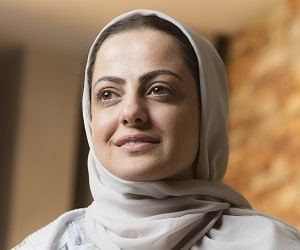 Morden, Kimberly-Clark: Pursuing outstanding corporate citizenship is not only good for business; it’s great for our employees and communities. |
BEST ISLAMIC CORPORATE BANK
Samba Financial Group
With a balance sheet of $68 billion, Samba continued its strong performance across multiple segments of Islamic finance in 2019, reinforced by innovative product launches and lead roles in large-scale Islamic financing. It consolidated its position in structured Islamic treasury products by taking a leading role in the industrywide initiative to develop an Islamic repo product for Saudi Arabia. Also worthy of mention are Samba Capital’s innovative launch of sovereign sukuk funds for its asset management clientele and a unique sharia-compliant, nonrecourse discounting structure for short-term receivables and payables in trade and supply chain financing. Samba was also one of the lead banks in the record-breaking initial public offering of Saudi Aramco. Net profit in 2019 was $1.06 billion with a strong contribution from corporate banking.
BEST ISLAMIC RETAIL BANK
Maybank Islamic Berhad
Maybank Islamic is the largest such bank in the Asean region and one of the five largest globally, with total assets of $57 billion. In Malaysia, it controls 30% of the Islamic banking market and its products and services are available through a network across Malaysia, Indonesia, Singapore, Dubai, Hong Kong, London and New York. Its Singapore operations position it as the regional funding center for Islamic banking in Asean and a conduit for Islamic funding from the rest of the world into the region.
Profit before tax at Maybank Islamic expanded more than 20% last year. Its expertise in retail banking is significant, and it has been particularly innovative in this sector over the years. Products include an alternative solution for home ownership, through a rent-to-own plan that is fully enabled on a digital platform. Launched in 2017, this housing finance product recorded good growth in 2019.
BEST SUKUK BANK
Standard Chartered Saadiq
Standard Chartered, through its Standard Chartered Saadiq unit, is a strong player in the global Islamic financing industry, and particularly in the global sukuk market. It ranked first in the international sukuk league tables last year, achieving a 17% market share. Standard Chartered Saadiq played a leading role in most sukuk issues by sovereigns and governments in 2019, including landmark deals for the Kingdom of Saudi Arabia ($2.5 billion, 10-year fixed rate), Bahrain ($1 billion), Turkey ($2 billion) and the government of Sharjah ($1.75 billion, two tranches). Other large deals that Standard Chartered Saadiq managed included offerings for Islamic Development Bank, First Abu Dhabi Bank, Dubai Islamic Bank, Qatar Islamic Bank and Qatar International Islamic Bank.
BEST ISLAMIC INVESTMENT BANK
Samba Financial Group
Standard Chartered, through its Standard Chartered Saadiq unit, is a strong player in the global Islamic financing industry, and particularly in the global sukuk market. It ranked first in the international sukuk league tables last year, achieving a 17% market share. Standard Chartered Saadiq played a leading role in most sukuk issues by sovereigns and governments in 2019, including landmark deals for the Kingdom of Saudi Arabia ($2.5 billion, 10-year fixed rate), Bahrain ($1 billion), Turkey ($2 billion) and the government of Sharjah ($1.75 billion, two tranches). Other large deals that Standard Chartered Saadiq managed included offerings for Islamic Development Bank, First Abu Dhabi Bank, Dubai Islamic Bank, Qatar Islamic Bank and Qatar International Islamic Bank.
BEST ISLAMIC FUND MANAGER
Kuwait Finance House
Kuwait Finance House (KFH), through its investment arm, KFH Capital Investment, has established a growing Islamic fund-management operation. One of its main offerings, KFH Capital Sukuk Fund, was a standout performer in 2019. KFH’s fund-management operation is likely to benefit significantly from its parent’s acquisition of Ahli United Bank.
BEST ISLAMIC SME BANK
Qatar Islamic Bank
The sixth-largest Islamic bank globally, with $45 billion in assets and $6 billion in equity, Qatar Islamic Bank (QIB) achieved considerable growth last year in its financing operations for small to medium-sized enterprises (SMEs), thanks to its Aamaly program. Aamaly provides special services to SMEs, including dedicated relationship managers, dedicated SME-centric banking centers, 24-hour banking, payroll services, cash and check collection, overnight vaulting and time deposits, and flexible lending and financing options.
For the first time in Qatar, QIB introduced packages last year to meet the needs of SMEs in different specific sectors, starting with construction, trading and services. These include discounted fees for letters of guarantee, bid bond guarantees in the construction sector, discounted fees for export letters of credit in the trading sector, reduced rates for equipment and machinery financing, and preferential rates for payroll services in the services sectors. As part of QIB’s strategy to continuously enhance its digital platforms, it recently updated its corporate internet banking portal to address and specifically cater to SMEs’ changing banking needs.
BEST ISLAMIC ASSET MANAGER
Boubyan Capital
Boubyan Capital, the asset management and investment arm of Kuwait-based Boubyan Bank, recorded a good performance across its range of funds in 2019. Boubyan’s sharia-compliant funds include multiasset, money market, liquidity, global sukuk and GCC equities. Boubyan has a strong Islamic finance franchise in Kuwait and is majority owned by the emirate’s flagship institution, National Bank of Kuwait.
BEST ISLAMIC TRADE FINANCE PROVIDER
Abu Dhabi Islamic Bank
Abu Dhabi Islamic Bank (ADIB), with more than $34 billion in assets, is the second-largest Islamic bank in the UAE and fourth-largest in the GCC region. Its 1 million customers tap into the third-largest distribution network in the UAE; and it has a presence in six other strategic markets: Egypt, Saudi Arabia, the UK, Sudan, Iraq and Qatar. Its trade finance operations recorded strong growth in 2019, reflecting increased emphasis on this area.
ADIB is investing in future growth through a digital transformation program aimed at enhancing the customer service and productivity that generate noncapital-intensive fee income. It is investing heavily in upgrading its transaction banking and trade finance proposition, enhancing product capabilities and automating the financing process. This includes digitizing customer-relationship management via an innovative system to increase efficiencies for corporates and SMEs. ADIB Direct is a web-based electronic banking service that provides customers with global transaction capabilities as well as information delivery.
BEST ISLAMIC TAKAFUL
Kuwait Finance House
KFH Takaful is showing strong momentum in the expanding Islamic insurance market. The creation of the KFH Takaful app and website boosted customer demand, in part by simplifying access to the bank’s wide range of insurance products, which include housing and travel plans. KFH Takaful’s medical insurance line also recorded good growth in 2019. The bank is also active in reinsurance.
BEST ISLAMIC PROJECT FINANCE PROVIDER
Dubai Islamic Bank
The third-largest Islamic bank in the world, Dubai Islamic Bank (DIB) had a strong year in project finance in 2019, executing high-profile deals for a range of clients including sovereigns, quasi-sovereigns and large corporates. Past and present projects have covered construction, electrical and mechanical, infrastructure, oil and gas and power and water facilities.
DIB acquired another leading Islamic institution, Noor Bank, early this year. Said Group CEO Adnan Chilwan in a statement to the Dubai Financial Market, “Whilst our organic growth has been well above the market over the last five years, … we are always on the lookout on how to accelerate this further. The Noor Bank acquisition is a prime example of the same; and with the transaction completed, we are now fully geared to push forward with the integration in the shortest possible time frame, and realize the extensive synergies expected from this deal.”
SUKUK DEAL OF THE YEAR
Standard Chartered
Last November, Islamic Development Bank (IsDB) issued its first-ever green sukuk in a €1 billion ($1.08 billion) deal under its newly established Sustainable Finance Framework. Standard Chartered was the underwriter. The deal achieved several other milestones for IsDB too: It was the first euro-denominated green sukuk, the first green sukuk to receive an AAA rating, IsDB’s largest euro sukuk issue and it carries the lowest coupon IsDB has ever earned. It also serves as a strong testament to Standard Chartered’s credentials in international sukuk as well as sustainable finance. Standard Chartered’s in-depth understanding of IsDB’s credit strengths contributed to bringing strategic investor orders into the transaction.
IPO/EQUITY DEAL OF THE YEAR
Saudi Aramco
Ranked the world’s biggest IPO, the long-awaited sale of Saudi Aramco shares initially raised $25.6 billion for the state-owned company last December; this was increased by $3.8 billion to a record $29.4 billion as the sharia-compliant deal was more than 4.6 times oversubscribed. Among the lead banks were Samba Financial Group and National Commercial Bank.
|
REGIONAL WINNERS |
|---|
AFRICA
Al Baraka Banking Group
Bahrain-headquartered Al Baraka Banking Group is the leading Islamic bank across the African continent; with $26 billion in assets at the end of 2019, it has presence in 16 countries operating through over 700 branches. Al Baraka has the widest geographical reach among Islamic financial institutions, with a strong presence in Tunisia, Morocco, Egypt, Algeria, South Africa, Turkey, Jordan, Sudan, Bahrain, Pakistan, Lebanon, Syria, Iraq, Saudi Arabia, Indonesia and Libya. Last year was a challenging one for the group, however, says Adnan Ahmed Yousif, president and CEO, noting that 2019 “saw the continuation of unfavorable international economic developments such as the trade war and unstable oil prices, in addition to the financial and geopolitical developments in some countries where our units operate.” Nonetheless, operating income at around $1 billion remained fairly stable year-on-year.
ASIA
Maybank Islamic Berhad
Supported by its strong parent bank, Maybank Islamic has long been one of the leading Islamic financial institutions globally and a frequent first mover in bringing innovative sharia-compliant financial products to the market. These attributes have enabled it to compile a record of strong performance over time on a high level of service and well-executed strategy. With $57 billion in assets, it is the largest Islamic bank in the Asean region. Its main market there is Malaysia, where it controls one-third of Islamic assets, but its activities extend into Singapore, Indonesia and Hong Kong. Maybank Islamic is seeing especially strong growth in Indonesia, where it holds a dominant position in the important Malaysian ringgit sukuk market and a good position in global sukuk.
The bank recently opened a branch in Dubai, focusing on wholesale banking, with emphasis on corporate financing, treasury, capital markets and trade finance. “Having a presence there, it’s easier for us to understand the deal flow,” says CEO Mohamed Rafique Merican. “We’re looking at three segments—potentially sovereign, quasi-sovereign and financial institutions—for issuing in the sukuk format. Other areas we will look at are syndicated financing and Islamic trade facilities.”
EUROPE
KT Bank
KT Bank, the first Islamic financial institution in the eurozone, has chalked up rapid asset growth over the last couple of years as it expands its customer base. With a total around €400 million (about $435 million) currently on its balance sheet, KT Bank has posted rising volumes in the retail, corporate and institutional sectors. Alongside ongoing investment in technology, including mobile banking, it has launched a series of sharia-compliant investment products. It recently opened a branch in Munich, its fifth in Germany.
MIDDLE EAST
Qatar Islamic Bank
Qatar Islamic Bank (QIB) controls over 50% of Islamic assets in Qatar and is active in the international sukuk market. It has strong regulatory ratios, with a current capital ratio above 19%. QIB posted a strong performance in 2019, as assets increased 7%, financing 11% and net profit rose 11%. The bank’s ROE jumped to 14.2% despite a large and rising capital base, while return on assets improved to 1.9%.
|
COUNTRY WINNERS |
|---|
AFGHANISTAN
Afghanistan International Bank
A private institution with its head office in Kabul, Afghanistan International Bank (AIB) commenced operations in 2004, soon after the fall of the Taliban government from power. Today the bank has assets of just over $1 billion and provides a range of Islamic banking products and services through a relatively wide domestic-branch network. AIB has recorded profits consistently despite a difficult and uncertain operating environment.
ALGERIA
Banque Al Baraka D’algérie
A unit of Al Baraka Banking Group, Banque Al Baraka d’Algerie posted net income growth of 23% in 2019 on assets of $2.2 billion. Its sharia-compliant banking services and activities in Algeria continue to expand, presently through a network of 31 branches.
BAHRAIN
Al Salam Bank
Al Salam Bank notched a stellar year in 2019: Total assets rose 19% to $5.4 billion, fueled by increased financing; while net profit increased 14%. The bank boasts a strong balance sheet with a capital ratio of over 20%. Al Salam offers a wide range of innovative Islamic financial products and services, such as iBank and online home applications.
BANGLADESH
Standard Chartered Saadiq Bangladesh
Standard Chartered Saadiq’s Bangladeshi unit posted robust growth in 2019 with revenue from retail operations growing 22% and its customer deposit book by 12%. It provides a range of sharia-compliant deposit products along with credit card, auto finance, mortgage finance and business banking offerings; and corporate and transaction banking, capital and financial market services.
BRUNEI DARUSSALAM
Bank Islam Brunei Darussalam
Bank Islam Brunei Darussalam holds the leading market position in Islamic finance in Brunei Darussalam and has posted good growth in recent years. Its balance sheet now exceeds $7.1 billion and 2018 net profit hit $84 million.
EGYPT
Abu Dhabi Islamic Bank—Egypt
A prominent player in Egypt’s rapidly expanding Islamic finance market, Abu Dhabi Islamic Bank–Egypt posted another strong year in 2019. Assets grew 36% to $3.8 billion, and net profit rose 53% to $73 million. ADIB Egypt also operates an investment banking arm and leasing operation and has invested heavily in technology.
INDONESIA
Bank Syariah Mandiri
A subsidiary of Bank Mandiri, Bank Syariah Mandiri recorded an exceptional year in 2019. Assets grew 19% to $8 billion, and net profit more than doubled to $90 million, reflecting Bank Syariah’s strong position as well as the rapid expansion of Islamic financing in Indonesia. Bank Syariah is particularly strong in the retail-banking segment.
IRAQ
Bank of Baghdad
With assets currently around $1 billion, Bank of Baghdad, part of the Bahrain-based United Gulf Holding Company, is expanding its Islamic financing activities in the rebuilding country.
JORDAN
Jordan Islamic Bank
Jordan Islamic Bank (JIB) is the country’s principal Islamic bank and its best performing. JIB’s balance sheet grew to $6.3 billion in 2019; and it posted a net profit of $77 million, up 10%. JIB offers a wide portfolio of Islamic banking products, backed by a capital ratio topping 22%.
KAZAKHSTAN
Al Hilal Bank
The first Islamic bank in Kazakhstan, established in 2010, Al Hilal Islamic Bank is now the Kazakh subsidiary of Abu Dhabi Commercial Bank Group (ADCB). The group is the product of the 2019 merger between ADCB, Union National Bank and Al Hilal Bank, all of the UAE. ADCB is the third-largest bank in the UAE.
KUWAIT
Boubyan Bank
Last year was pivotal for Boubyan Bank, as it continued to expand its presence in the digital and fintech world, introducing numerous improvements and enhancements to existing services. Total assets rose 22% to $17.5 billion, customer deposits rose 17% and net profit was up 11% to $206 million. Boubyan’s market share of local finance increased to 9.3%, compared to 8.6% in 2018, while its share of the retail finance market expanded to more than 13%.
LEBANON
Albaraka Bank
AlBaraka was the first Lebanese bank to operate in compliance with sharia principles; and over the last several years, it has introduced a number of new products to the market. Banks face substantial challenges in the chronically unstable state, and AlBaraka Bank Lebanon has the advantage of being part of a larger banking group headquartered elsewhere.
MALAYSIA
Maybank Islamic
Maybank Islamic remains Malaysia’s long-time flagship Islamic bank, controlling over 30% of the market and with a dominant market position in nearly all sharia-compliant areas. It offers a range of products and services and is known for innovation and a strong financial profile.
MOROCCO
Bank Assafa
Bank Assafa is a subsidiary of Attijariwafa Bank, the leading institution in Morocco. Bank Assafa began operations three years ago and has since recorded solid growth, benefiting from its link with Attijariwafa and the parent’s expertise in retail banking.
NIGERIA
Jaiz Bank
Founded 17 years ago as an investment holding company, the first Islamic financial institution in Nigeria, Jaiz Bank, was granted a regional banking license in 2011 and a national license in 2016. It continues to expand nationwide and last year saw accelerated growth in assets, now around $400 million.
OMAN
Bank Nizwa
Bank Nizwa is the fastest growing Islamic institution in Oman; both its retail and its corporate client bases are increasing, boosted by an electronic channel. Net profit increased 36% in 2019, and total assets grew 19% to reach $2.7 billion, while customer accounts doubled.
PAKISTAN
Meezan Bank
Meezan is Pakistan’s largest and fastest growing Islamic bank, with a network of 750 branches and an asset base of around $7 billion; last year saw growth of 20% in local currency terms. Meezan offers a range of products and services targeted at the broader public as well as midtier and premium banking customers. Net profit in 2019 soared by 70%.
PALESTINE
Palestine Islamic Bank
Arab Islamic Bank is the oldest and largest Islamic bank in Palestine. It currently reports assets around $1 billion with an 8% market share of financing.
QATAR
Qatar Islamic Bank
QIB is Qatar’s leading Islamic financial institution, with a market share of 50% of sharia-compliant assets and strong operations across wholesale and retail banking. QIB Group has a stake in several other sharia-compliant Qatari financial services companies as well, covering investment banking, takaful and consumer finance.
SAUDI ARABIA
Samba Financial Group
Samba’s Islamic banking operations in Saudi Arabia maintained good growth last year across the main markets of retail, SME, corporate and investment banking. It enjoys a good reputation domestically and regionally with well-regarded management.
SINGAPORE
Maybank Islamic Berhad
Maybank Islamic offers the only Shariah-compliant bank financing in Singapore, tailored for the growing retail and SME segments. Financing assets grew by 22% in 2018 and total assets reached $1.7 billion.
SOUTH AFRICA
HBZ Bank
Wholly owned by Habib Bank Zurich, HBZ Bank recorded solid growth in financing over the past few years. Total assets were around $400 million as of the end of 2018.
SRI LANKA
Amana Bank
The biggest player in Islamic banking in Sri Lanka, Amana Bank credits its success to its product range and performance. Total assets increased to $500 million in 2019.
SUDAN
United Capital Bank
Established in 2006, United Capital Bank specializes in financing corporate entities and major projects. National Bank of Kuwait and Boubyan Bank own large stakes, and management is considered good.
TUNISIA
Al Baraka Bank Tunisia
Part of Al Baraka Banking Group, the Tunisian unit has adopted an innovative commercial strategy, based on digital technology, that is strengthening its strategic positioning in the local market.
TURKEY
Kuveyt Turk Katilim Bankasi
Majority owned by Kuwait Finance House, Kuveyt Turk Katilim Bankasi continues to grow steadily despite a sluggish economy in Turkey. At the end of 2019, the bank reported total assets of $18 billion, up 27%, and higher net profit at $198 million.
UNITED ARAB EMIRATES
Emirates Islamic Bank
Emirates Islamic Bank offers a comprehensive range of sharia-compliant products and services across the personal, business and corporate banking spectrum, through a network of 55 branches. Assets grew to $17.6 billion in 2019, and net profit rose 15% to $289 million.
